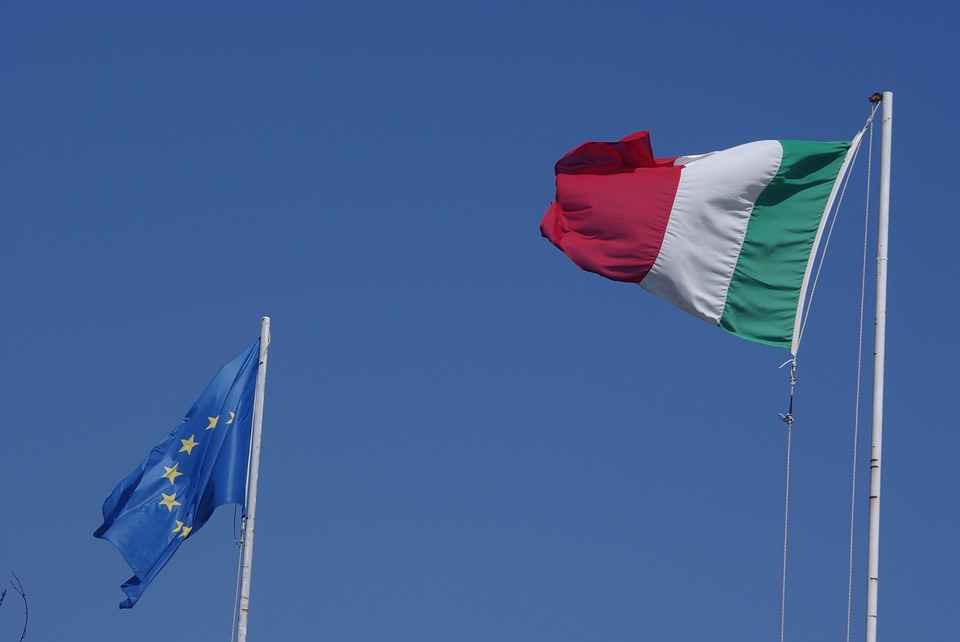There is less than a week before the vote, which will be held on December 4. The population, however, still has many misconceptions about possible consequences of the referendum, believes Fabio Balboni, European economist at HSBC.
Myth №1
If Italy votes in favor of Prime Minister Renzi’s reform, this does not mean that era of political change will come immediately.
"Positive decision will not trigger an era of reforms and political stability, at least until the upcoming elections. Rather, the general election will be held in Italy not later than May 2018. Given growing resistance to Renzi and his party, major reforms are unlikely to be carried out in the next year. Neither there will be significant cuts of budget deficit in line with latest commitments of the government".
Myth №2
There will be no early general elections if Renzi’s reforms fail and the referendum is voted against.
Italian Constitution implies that it is President, not Prime Minister who has an authority to call an election. This means that the power in the hands of Mattarella, not Renzi, and it is unlikely that he will go for it.
"We believe that even if Renzi resigns, President will refrain from dissolution of Parliament in the absence of an election law to the upper chamber. A negative vote will keep the upper chamber on its place." - says Balboni.
The earliest period of probable elections is the second half of next year, less than a year before those election, which must be conducted in accordance with Italian law.
Myth №3
A negative vote will not lead to a new wave of populism in the country, and to rise of "Five Star Movement" in the future.
This is a populist movement, which is not positioning itself either right or left. Rather, it carries a lot of the center-left characteristics. Over the past year, it has received significant support after winning in Rome. Given populism spreading across Europe, many argue that failure to reform could be seen as another anti-establishment voice.
According to Deutsche Bank’s analysts, all events in Italy indicate a rise in popularity of Euroscepticism. They believe that ‘Italeave’ has already reached 60%.
The analysts predict the three main scenario:
1. Senate reform is approved. In fact, nothing will change, yet there will be no shocks. It would be the most favorable outcome for the market, and the government would hold the lead until its term ends in II quarter 2018
2. Senate reform is opposed. In this scenario, the country will have to hold new elections in 2017. Due to fundamental political differences, formation of a new government will be postponed, and the process will be delayed indefinitely.
3. Deutsche Bank’s experts consider the third option the most probable. The reform is rejected. Renzi resigns and a new government is formed for a limited time, until the electoral law is written. Early elections will be held in the summer 2017, and the government will perform its duties until the second half of the year.
source: businessinsider.my
Myth №1
If Italy votes in favor of Prime Minister Renzi’s reform, this does not mean that era of political change will come immediately.
"Positive decision will not trigger an era of reforms and political stability, at least until the upcoming elections. Rather, the general election will be held in Italy not later than May 2018. Given growing resistance to Renzi and his party, major reforms are unlikely to be carried out in the next year. Neither there will be significant cuts of budget deficit in line with latest commitments of the government".
Myth №2
There will be no early general elections if Renzi’s reforms fail and the referendum is voted against.
Italian Constitution implies that it is President, not Prime Minister who has an authority to call an election. This means that the power in the hands of Mattarella, not Renzi, and it is unlikely that he will go for it.
"We believe that even if Renzi resigns, President will refrain from dissolution of Parliament in the absence of an election law to the upper chamber. A negative vote will keep the upper chamber on its place." - says Balboni.
The earliest period of probable elections is the second half of next year, less than a year before those election, which must be conducted in accordance with Italian law.
Myth №3
A negative vote will not lead to a new wave of populism in the country, and to rise of "Five Star Movement" in the future.
This is a populist movement, which is not positioning itself either right or left. Rather, it carries a lot of the center-left characteristics. Over the past year, it has received significant support after winning in Rome. Given populism spreading across Europe, many argue that failure to reform could be seen as another anti-establishment voice.
According to Deutsche Bank’s analysts, all events in Italy indicate a rise in popularity of Euroscepticism. They believe that ‘Italeave’ has already reached 60%.
The analysts predict the three main scenario:
1. Senate reform is approved. In fact, nothing will change, yet there will be no shocks. It would be the most favorable outcome for the market, and the government would hold the lead until its term ends in II quarter 2018
2. Senate reform is opposed. In this scenario, the country will have to hold new elections in 2017. Due to fundamental political differences, formation of a new government will be postponed, and the process will be delayed indefinitely.
3. Deutsche Bank’s experts consider the third option the most probable. The reform is rejected. Renzi resigns and a new government is formed for a limited time, until the electoral law is written. Early elections will be held in the summer 2017, and the government will perform its duties until the second half of the year.
source: businessinsider.my





